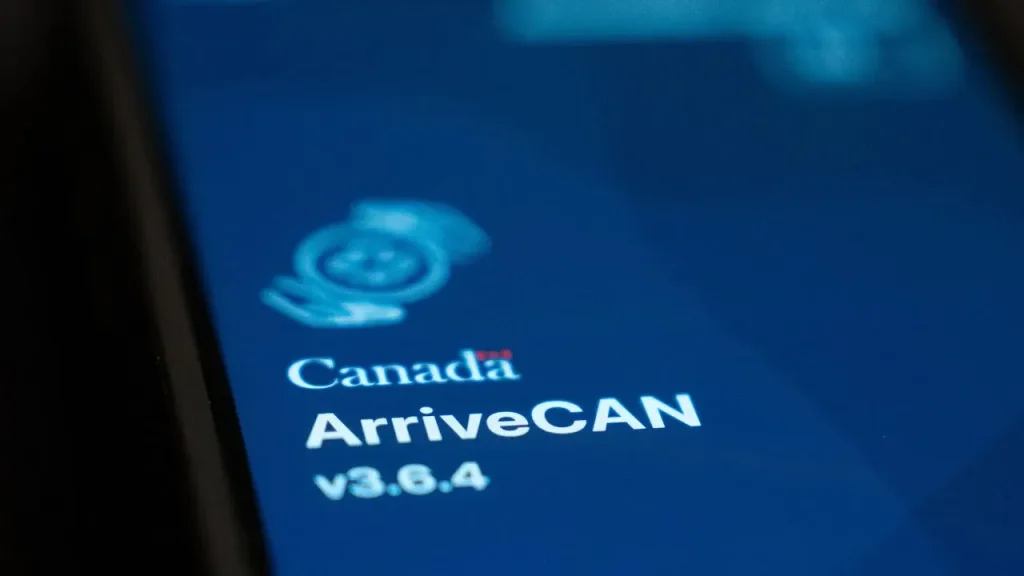The recent awarding of nearly $100 million in contracts for the ArriveCan app has sparked considerable discussion about federal contracts scrutiny in Canada. The Canadian Border Services Agency took a significant step by awarding four contracts totaling $49.9 million to GC Strategies for the development and implementation of this crucial digital tool aimed at managing COVID-19 protocols at the border. However, an auditor general’s report has raised questions about the effectiveness of these contracts, noting that 31 federal organizations issued an astounding 106 contracts worth approximately $92.7 million to GC Strategies from April 2015 to March 2024. This raises urgent concerns regarding public spending accountability, especially in the context of funds allocated during a global health crisis. As scrutiny mounts over the Canadian government’s financial commitments, the focus is on the need for transparency and the optimization of the ArriveCan app funding to ensure tangible results for public health.
The significant financial investments related to the ArriveCan platform highlight broader issues of government contract management and accountability within federal spending. These allocations, involving a substantial amount of taxpayer money directed towards pandemic response measures through digital solutions, demand greater oversight and evaluation. As the auditor general’s findings reveal, the relationships between federal agencies and private contractors like GC Strategies warrant an examination to improve future public sector procurement processes. The debate surrounding effective resource utilization during emergencies has never been more pertinent, as citizens call for enhanced transparency to validate that these expenditures yield the intended health outcomes. With a robust conversation emerging around the modernization of public health tools, ensuring accountability and efficiency in these contracts is paramount.
Highlighting the ArriveCan App Contracts
The Canadian government awarded GC Strategies significant contracts totaling nearly $100 million to develop and implement the ArriveCan app, which played a crucial role during the COVID-19 pandemic. These contracts, issued primarily by the Canadian Border Services Agency, raise questions about the decision-making process and accountability in the public procurement landscape. Despite previous scrutiny of GC Strategies, the federal government continued to engage their services, indicating a possible need for stricter oversight in federal contracts.
Auditor General reports have revealed that from April 2015 to March 2024, 31 federal organizations issued 106 contracts to GC Strategies, highlighting a potential lack of transparency surrounding public spending. The focus on the ArriveCan app underscores the necessity for evaluating the effectiveness of such contracts, particularly in delivering expected outcomes during critical times. Moving forward, ensuring robust mechanisms to assess contractor performance will be vital for both financial stewardship and public trust.
Federal Contracts Scrutiny and Public Accountability
The scrutiny surrounding federal contracts, particularly those awarded amidst emergency health measures, has prompted discussions about public spending accountability. As various organizations question the adequacy of oversight, the case of GC Strategies serves as a prominent example. The auditor general’s findings suggest a disconnect between federal agencies and their contractors, emphasizing the importance of transparency in government dealings to foster trust among Canadian citizens.
Public spending accountability has never been more critical, especially during crises where funds are directed toward immediate solutions. There is a pressing need for reforms that enhance the scrutiny of contracts awarded to external vendors such as GC Strategies. Implementing stringent review processes may help ensure that taxpayers’ money is utilized effectively, ultimately fostering a culture of responsibility and accountability within governmental agencies.
The Role of the Auditor General in Monitoring Contracts
The role of the Auditor General (AG) is crucial in maintaining oversight over federal contracts, as highlighted by the recent report on the ArriveCan app funding. They serve as an independent authority that evaluates government spending and helps to ensure that public funds are used efficiently. The AG’s examination of contracts awarded to GC Strategies has provided an important perspective on how funds were allocated and the effectiveness of these contracts in achieving intended outcomes.
In scrutinizing the issuance of 106 contracts worth $92.7 million, the Auditor General holds a mirror up to the federal contracting processes. This level of oversight is necessary in ensuring that contracts are not only awarded based on efficiency but also merit. As the government continues to engage firms like GC Strategies, there is a heightened responsibility for the auditor’s role in upholding accountability standards and reinforcing public trust in government operations.
Challenges Faced by the ArriveCan App
The ArriveCan app, designed to assist in the screening of travelers during the pandemic, has faced several challenges, from usability issues to concerns regarding efficiency. Despite receiving significant funding, reports suggest that the app did not meet all of its intended goals effectively. The challenges highlighted not only the operational difficulties but also the pressing need for a comprehensive strategy in developing health-related technology during public health crises.
Moreover, the discourse surrounding the ArriveCan app reveals deeper implications for public health infrastructure and technology readiness in Canada. Stakeholders are now calling for improved communication and collaboration among federal agencies and technology providers like GC Strategies. Adequately addressing these challenges will be essential for future digital health initiatives aimed at safeguarding public health.
Future of Federal Contracts and Technology Funding
With the ongoing evaluation of the ArriveCan contracts, discussions on the future of federal contracts and technology funding are becoming increasingly relevant. As the government looks to invest in innovative solutions for public health and safety, there is a critical need for establishing clear guidelines that prioritize accountability and transparency within contracting processes. The lessons learned from the ArriveCan app’s development could inform how future contracts are structured and monitored.
Ensuring that funds allocated for technology are used judiciously will not only enhance public trust but also ensure that projects deliver on their promises—especially in emergencies. By adopting rigorous evaluation standards for both contractors and projects, the government can create an environment where technology funding effectively contributes to the welfare of citizens while upholding the principles of accountability and public integrity.
Reforming Public Spending Policies
The recent revelations regarding the ArriveCan funding spotlight the urgent need for reforming public spending policies. Policymakers are increasingly recognizing that the existing frameworks for awarding contracts may not adequately address issues of transparency and performance accountability. As public scrutiny intensifies, there is pressure to implement significant reforms that would help safeguard taxpayer interests and improve the efficiency of federal spending.
In reforming these policies, stakeholders must focus on enhancing the mechanisms for contract assessment and vendor performance monitoring. This could include mechanisms for public feedback and a more structured evaluation of contractor outcomes, especially for projects that are critical to public health like the ArriveCan app. Reforms aimed at bolstering public spending accountability could pave the way for more responsible and effective governance in the long run.
The Impact of Technology on Health Measures
The implementation of the ArriveCan app reflects a growing trend of utilizing technology to manage public health measures effectively. However, it also poses questions about the implications of such technology on data privacy and user experience. As technology becomes integral to public health strategies, it is essential to address how data is collected, used, and protected to foster public confidence in these systems.
The ongoing conversation about the app’s effectiveness has drawn attention to broader trends involving technology in health policy. Future initiatives must consider not only the technological capabilities but also the ethical implications involved in their use. An inclusive approach that incorporates input from different stakeholders—public health officials, technology providers, and the general public—will be critical for enhancing the impact of such measures on health outcomes.
Lessons Learned from COVID-19 Contracts
The situation surrounding the ArriveCan app and contracts awarded to GC Strategies provides crucial lessons for future pandemic response measures. The challenges experienced during the COVID-19 crisis highlight the importance of selecting the right contractors who can deliver quality solutions under tight time constraints. Learning from these experiences will be vital for preparing Canada for potential future health emergencies.
Additionally, scrutiny of the contracts revealed the necessity of having robust oversight mechanisms in place during times of crisis. To ensure that funds are spent efficiently, there needs to be a reevaluation of how contracts are awarded, managed, and assessed. Building a more resilient framework for public health contracts will help mitigate risks and ensure that future challenges can be met with timely and effective responses.
Ensuring Transparency in Public Spending
As the Canadian government continues to allocate significant funds for projects like the ArriveCan app, the importance of transparency in public spending cannot be overstated. Citizens expect to know how their tax dollars are being used, particularly in high-stakes situations such as the pandemic. Enhanced transparency measures, including publicly accessible databases of contracts and expenditure, can bolster public trust in government actions.
Moreover, increasing transparency is not just about accountability; it can lead to improved outcomes. By allowing the public insight into the procurement and allocation processes, government agencies can benefit from citizen feedback and input. This collaborative approach could result in richer dialogue between the government and its constituents, fostering a culture of shared responsibility in public health initiatives.
Frequently Asked Questions
What are ArriveCan contracts and how do they relate to the COVID-19 pandemic?
ArriveCan contracts refer to agreements made by Canadian federal entities, primarily the Canadian Border Services Agency, for the development and implementation of the ArriveCan app. This app was crucial for managing COVID-19 health measures at the border, allowing travelers to submit their health information electronically. These contracts aim to ensure that public health protocols are efficiently enforced to safeguard the community during the pandemic.
How much funding has been allocated for ArriveCan app development through federal contracts?
The Canadian federal government has allocated approximately $92.7 million through 106 contracts related to the ArriveCan app, with $49.9 million specifically awarded to GC Strategies by the Canadian Border Services Agency. This significant funding highlights the government’s investment in managing COVID-19 health measures effectively.
What issues have been raised regarding ArriveCan app contracts with GC Strategies?
Concerns regarding ArriveCan app contracts with GC Strategies have emerged due to previous scrutiny surrounding the firm’s performance and the transparency of the funding allocations. The auditor general’s report indicates a need for increased accountability and oversight on how these funds are managed, particularly considering the critical nature of public health during a pandemic.
Why is scrutiny of ArriveCan contracts important for public spending accountability?
Scrutiny of ArriveCan contracts is vital for public spending accountability as it helps ensure that taxpayer money is used effectively and efficiently. By examining the contracts awarded to GC Strategies and others, the government can identify potential mismanagement and enforce stronger policies to improve transparency and accountability in future public spending, especially in crisis situations.
What has the auditor general said about the effectiveness of ArriveCan app funding?
The auditor general’s report on ArriveCan app funding has highlighted concerns about the effectiveness of the contracts issued, particularly how well the expectations of the funding have been met. The report suggests that there may be gaps in accountability and effectiveness in the management of funds allocated to improve public health measures, thereby calling into question the oversight processes in place.
How do ArriveCan contracts reflect the relationship between government agencies and contractors?
ArriveCan contracts illustrate the complex relationship between government agencies, like the Canadian Border Services Agency, and private contractors such as GC Strategies. The significant funding aligns with the need for rapid solutions during health crises, but it also raises questions about the adequacy of federal contracts scrutiny, particularly in ensuring that public funds achieve intended outcomes and service transparency.
What are the future implications for ArriveCan contracts and public health measures in Canada?
The future implications of ArriveCan contracts for public health measures in Canada may lead to policy reforms aimed at enhancing accountability and oversight within federal contracts. The scrutiny from the auditor general’s report may drive governmental agencies to establish stronger guidelines and evaluation frameworks for future contracts, especially in managing crises like the COVID-19 pandemic.
| Key Points |
|---|
| Feds awarded ArriveCan firm nearly $100 million in contracts, despite issues: AG report |
| Canadian Border Services Agency granted $49.9 million in contracts to GC Strategies. |
| 31 federal organizations issued 106 contracts totaling approximately $92.7 million to GC Strategies from April 2015 to March 2024. |
| Contracts intended for the development and implementation of the ArriveCan app, used for COVID-19 health measures at the border. |
| Concerns about effectiveness and transparency of contracts due to ongoing pandemic challenges. |
| Call for accountability and potential policy reforms in government spending and contractor relationships. |
Summary
ArriveCan contracts have raised significant concerns regarding transparency and effectiveness in government spending. The various contracts awarded to GC Strategies, amounting to nearly $100 million, were primarily for developing the ArriveCan app aimed at managing public health measures during COVID-19. With the Auditor General flagging issues regarding the management of these funds, it is crucial to evaluate whether the expected results have been achieved and to consider necessary reforms that ensure accountability in public procurement processes.



